Wyatt Reynolds spent years trying to save his soul. As a 7-year-old, he prayed nightly before bed. He went to church faithfully in his south Georgia community but was never convinced that he had truly given his heart to Jesus.
Then, barely a teen, Reynolds began listening on his iPod Nano to a daily radio show run by Albert Mohler, the president of Southern Baptist Seminary, and went on to read the works of John Piper, R.C. Sproul and other contemporary Reformed Christian theologians and pastors. Through them, he found and embraced the Calvinist doctrines of grace.
“That was super liberating for me as an incredibly angsty middle schooler,” said Reynolds, now a Ph.D. candidate at Columbia University in New York.
Reynolds had joined the ranks of the “Young, Restless and Reformed” — a renewal movement born in the early 2000s and fueled by scores of his evangelical Christian peers who had grown up with largely theology-free, self-help-y sermons and fundamentalist shibboleths of evangelical churches. Instead, these young Christians drank deeply of a theology named for the 16th-century French Protestant John Calvin that was brought to America by the Puritans.
At the time Reynolds joined, the Calvinist renewal movement was a juggernaut that generated a seemingly endless stream of conferences, books, videos and social media posts. As charismatic and intellectual as they were conservative, its leaders touted countercultural ideas such as complementarianism — the belief that, while the sexes are equal, God put men in charge of the church and the home. Reformed renewal became a powerful lifestyle brand that united Christians across denominations and generations.
Your tax-deductible gift helps our journalists report the truth and hold Christian leaders and organizations accountable. Give a gift of $30 or more to The Roys Report this month, and you will receive a copy of “Hurt and Healed by the Church” by Ryan George. To donate, click here.
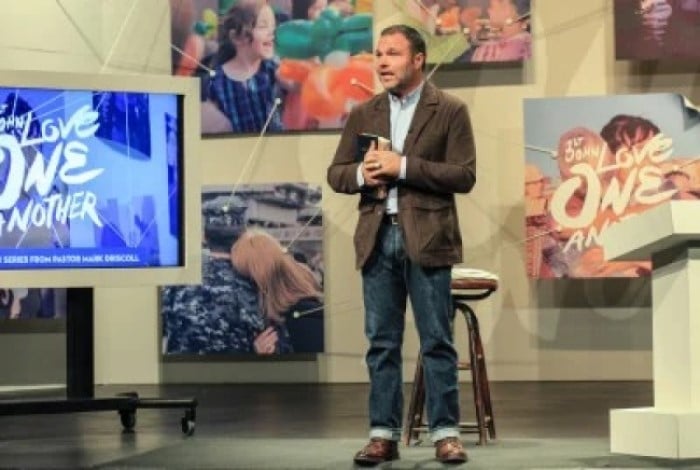
With that success came spectacular failures. In the 2010s, many of the movement’s leaders would eventually fall from grace. Among them: Mark Driscoll, founder of the now-shuttered Seattle megachurch Mars Hill; prominent pastor Tullian Tchividjian admitted to sexual misconduct; C.J. Mahaney was accused of covering up abuses in his church network; James MacDonald was terminated for a “substantial pattern of sinful behavior.”
Joshua Harris, whose bestselling 1997 book “I Kissed Dating Goodbye” was a bible of the purity culture, has left the Christian faith altogether.
This spring, the movement suffered another blow with the death of Tim Keller, a retired New York megachurch pastor, bestselling author and co-founder of The Gospel Coalition, one of the flagship institutions of the Reformed resurgence. Known for his intellectual curiosity and personal kindness, Keller was diagnosed with pancreatic cancer in 2020 and died in late May.
While the movement remains influential, the controversies and losses raise questions about its future.
“What happens when you wake one morning and realize that if something’s going to be reformed,” said author and speaker Hannah Anderson, who was heavily influenced by the Reformed resurgence, “you’re the target of the reforming?”
Anderson said she first encountered Calvinist theology as a college student through Minnesota pastor Piper’s 1986 book “Desiring God.” She’d come from a fundamentalist background where the overwhelming message was that a person could never be good enough to earn God’s love.
In Calvinism, she found a doctrine of salvation — or “soteriology,” as theologians put it — that said it was God whose act of bestowing grace saved people, not human effort. “Anything that spoke of grace was revelatory,” she said. “The grace part of reformed soteriology felt like water to thirsty people.”
As the movement grew, aspiring pastors began to flock to seminaries that taught the so-called doctrines of grace. Mohler’s Southern Baptist Theological Seminary in Louisville, Kentucky; The Master’s Seminary in Los Angeles; and Piper’s Bethlehem College and Seminary in Minneapolis began churning out so many young, zealous pastors that the movement made national headlines.
Author Collin Hansen, whose 2008 book “Young, Restless, Reformed” chronicled the movement’s early days, explained Calvinism’s appeal to young Christians to Time magazine in 2009, saying, “They have plenty of friends: what they need is a God.”

Author Wendy Alsup , a longtime member of Mars Hill Church in Seattle, said she was drawn to the church’s surprising pairing of intellectual rigor and approachability. This approach translated into a veneer of sophistication. “At the time, it meant that you could dress more hipster and drink beer, as opposed to a lot of the fundamentalist upbringing I had,” said Alsup.
But most importantly, many of those who encountered Calvinism around this time say their faith suddenly blossomed under its influence. Former Southern Baptist Convention President J.D. Greear said in a recent interview that, growing up, his understanding of God was “too small.” He struggled to give God the kind of devotion the Bible demanded, Greear said, which left him bewildered.
Things began to change after he read “The Religious Affections” by the Puritan writer Jonathan Edwards, who described a God big enough to commit his soul to — bigger than the figure who appeared in the seeker-friendly megachurches he’d grown up in.
“There was something about the Reformed presentation of the gospel that rang deeply in our hearts,” he said. “Because this was the God that had been talked about through all of the Bible stories we’d been hearing.”
Like the original Reformation of the 1500s, which advanced on the strength of the printing press, the new Reformed Christians were bolstered by a revolution in publishing — the internet allowed web-based apologists such as The Gospel Coalition, whose site draws 10 million viewers a year in the U.S. alone, to issue a constant stream of arguments.

Kristin Du Mez, professor of history at Calvin University and author of the 2022 bestseller “Jesus and John Wayne,” said the movement made Calvin’s tortuously layered doctrines accessible. “It was kind of a snack size theological instruction and very accessible, very popular for that reason,” she said. “But with a sense of being a weightier take.”
The resurgence also benefited from more traditional formats. In 2001, Crossway published the English Standard Version, a new Bible translation that used traditional terms such as “mankind” and “men” to denote human beings and favored a complementarian reading of the Scriptures. Its success backed a publishing empire, according to Joey Cochran, an American religious historian and editor of the Anxious Bench blog at Patheos.com
In this Cochran sees a resemblance to Dispensationalism, an end-times theology based on the work of John Nelson Darby that popularized the concept of the Rapture in the early 1900s. Dispensationalism also had its own Bible — the Scofield Study Bible. It spread through radio broadcasts, the new tech of the time, and low-cost print publishing. Similar to Dispensationalism, whose Rapture theology is now widely considered a core biblical belief, new Calvinism used its network to plant ideas such as complementarianism firmly in the evangelical conversation.
But perhaps nothing created the Calvinist phenomenon more than conferences. Thousands of young evangelicals like Greear found each other through events run by organizations such as Together for the Gospel — known as T4G — and The Gospel Coalition. They forged long-term friendships and cooperation across denominational lines that continued as they gained pulpits across the U.S.
That sense of community is typical of evangelical renewal movements, said Du Mez. Baptists, Calvinists and even charismatic Christians saw Reformed theology as a unifying force, regardless of the theological traditions of their denominations.
Another hallmark of the Reformed resurgence was its development of scores of new congregations and a relentless desire among its adherents to spread the gospel.
Molly Worthen, a religious historian at the University of North Carolina, experienced that relentlessness firsthand while writing last year about the Summit Church, Greear’s North Carolina megachurch. “There are few things that humans find more exciting than feeling like they are part of an unstoppable movement,” Worthen wrote.
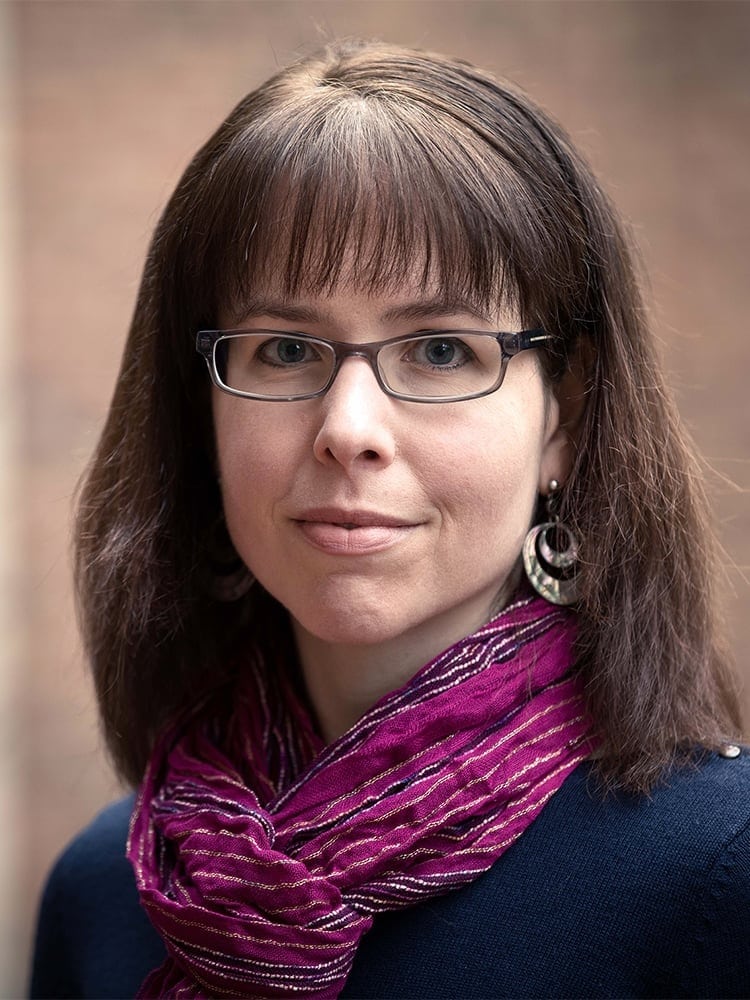
Worthen, who credits Greear and Keller for her unexpected conversion to evangelical Christianity last summer, said the two men’s beliefs that ideas matter — and that Christianity had intellectual rigor — helped open the door to that conversion.
She suspects intellectual curiosity plays a role in the influence of the Reformed resurgence movement and The Gospel Coalition. “I think there is a fusion there in The Gospel Coalition — which of course Keller helped to found — that combines emphasis on mission with this intellectual gravity and this commitment to serious conversation about ideas that I think people in general are hungry for,” she said.
Brad Vermurlen, a research associate in the sociology department of the University of Texas and author of “Reformed Resurgence: The New Calvinist Movement and the Battle Over American Evangelicalism,” believes the movement’s influence outpaced its actual numbers. New Calvinists came to “represent the center of influence and excitement within the American evangelical landscape,” he said, but in recent years, the movement has declined in “prominence, excitement and energy.”
While the renewal identified charismatic leaders and gave them platforms, it did not do a good job of mentoring those leaders, said Reynolds. While attending The Journey, an influential Reformed church in St. Louis, he saw the church’s pastor, Darrin Patrick, fired in 2016 for misconduct.
“There wasn’t real mentorship of up-and-coming people,” said Reynolds. “There’s a way in which, if someone said they were called, looked good in skinny jeans and could quote someone who was dead, and pop culture, then you could be a leader.”
Anderson said she regrets the movement wasn’t Calvinist enough. She believes the movement focused mainly on salvation but missed a broader emphasis on common grace and the goodness of God’s creation. Those ideas — that God is at work everywhere and not just among an elect few — matter. For some leaders, she said, that lack of balance led to a certainty of belief that lacked kindness toward anyone who disagreed.
Alsup said pride also become a downfall for some leaders in the Reformed resurgence, who believed their theology was better than other Christians’.
Though Mars Hill members didn’t refer to themselves as “new Calvinists,” according to Alsup, when Mars Hill was at its best, members were comforted by Calvinist doctrines like irresistible grace, God’s sovereignty and the perseverance of the saints, which teach that “once God’s got you, he will keep you,” said Alsup.
But Mars Hill’s foundation began to crack. Driscoll was hit with accusations of plagiarism, profanity, sexual fixation, abuse of power and promoting an aggressive brand of machoism.
While Driscoll’s downfall has been attributed to many factors, Alsup points to an arrogance that she said many church members shared. “We thought we were doing something new for God,” she said. “And we despised the generation that came before us. And the pride was the downfall.”
In the years since Mars Hill imploded, Alsup has found herself at a small, multicultural church plant in the Presbyterian Church in America — “I kept the Reformed, but shook off the young and restless,” she quipped.
Keller, Alsup said, represented the best of the new Calvinist movement. He effectively communicated God’s greatness and grace, exuding kindness while probing constantly with his mind.
“It will be interesting to see, does it survive without someone like Tim?” Alsup said. “Have enough folks learned things from Tim to carry on the mantle of making it not threatening, but beautiful?”
Bob Smietana and Kathryn Post are national reporters for Religion News Service.




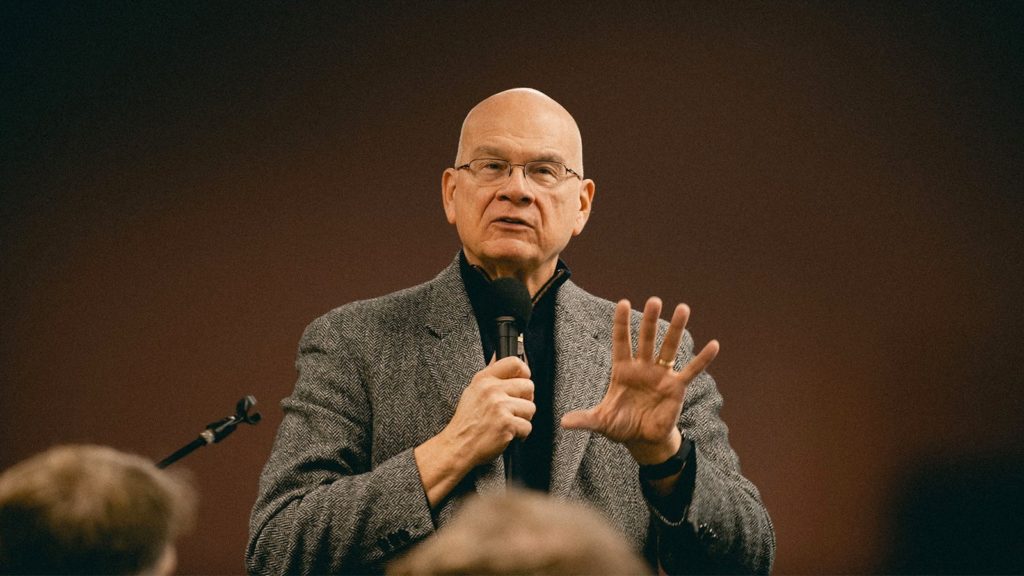

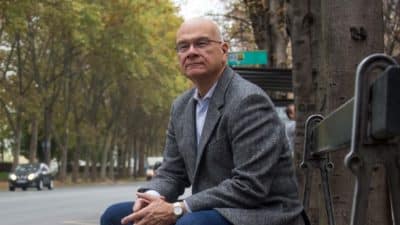
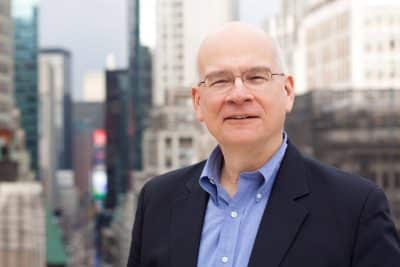


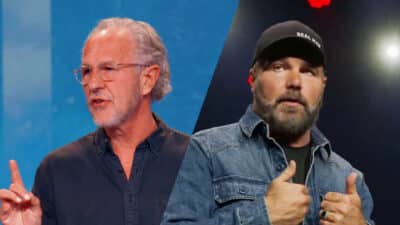









13 Responses
“…lack of balance led to a certainty of belief that lacked kindness toward anyone who disagreed.
Alsup said pride also become a downfall for some leaders in the Reformed resurgence, who believed their theology was better than other Christians.””
The weaknesses of faddish movements will eventually cause their own collapse.
Focus on God and his Wird, not on Calvin’s defective teaching, which he claims that God is the “author of sin.”
Hi John,
I heartily concur that building up one’s faith on faddish movements and not on the Lord Jesus Christ as he has revealed himself in the Holy Scriptures is a sure path to disappointment (at best) and perdition (at worst).
I doubt, however, that you have read Calvin (or those who share his confession as to the testimony of Scripture) on the subject of sin. He devotes a section in one of his works (Institutes of the Christian Religion; Book 1, Chapter 1, Section 10) to refuting that God is the author of sin. I encourage reading the whole section (which lays the blame for our personal rebellion against the Creator of all things with each of us personally), but his summary is sufficiently clear to refute your claim: “10. From the exposition of both parts of the definition [the fall of Adam into sin and thereby the whole human race] it follows that God is not the author of sin, the whole human race being corrupted by an inherent viciousness.”
One may disagree with another and his/her conclusions, but it is a transgression of the 9th Commandment to ascribe to another a belief that he/she heartily disavows.
Together for the Gospel, the Conference that The Gospel Coalition sponsored, has ended. If you look at the website, it ahs 2022 as the last year. https://t4g.org/ That is telling. Piper is 77years old. MacArthur is 83. Mahaney is non-involved. Mohler has too many other projects going, radio, seminary. Keller is with Jesus. Driscoll was a joke. MacDonald is a fake (accused of assaulting a woman on the street in 2023 https://julieroys.com/megachurch-pastor-james-macdonald-charged-assault-attack-woman/). Kevin DeYoung has his mega-church to attend to, and the list goes on. The Pastor’s conferences that some of these men sponsor are still going strong, but how long can Piper (at 77) and MacArthur (at 83) keep drawing young men and women.
I do not think the movement is over. There are strong thinkers in the seminaries, writers emerging who are as good or better than Piper and D.A. Carson, and there are several prominent seminaries that are thriving that promote the Calvinism and cultural engagement. And the chaff is being blown away by exposure by online bloggers and same day journalists (e.g. Julie Roys). My opinion is that this movement will flourish and go through changes, just like the fundamentalist movement of the 60’s-80’s did, but it will survive longer than fundamentalism, mainly because of the serious theological underpinnings. I’ve written many posts on this site that have not been permitted to be posted, with no explanation. I hope you’ll post this one.
I find your optimism refreshing.
I disagree. The younger crop are largely, in my experience, motivated by theological conviction but not love. Nobody wants a Calvinism that shows no grace. It is love, not certainty, that the world will know us by.
I am part of that movement, and the overwhelming majority of my friends are motivated by truth and love.
This is fascinating. In SBC churches where inflexibility, is confused with adherence to scripture, the influence of Bill Gothard, snuck in as well, complete with his umbrella of authority, purity culture, etc. This combined with the complementarianism and seeming intellectual rigor of YRR/Keller/TGC to make a seemingly undeniable argument, that women and children are lesser and must be silenced—- that created an atmosphere that endorsed and sanctified grooming and abusive behaviors in the name of gospel solidarity and orthodoxy. It is another tower of babel with its own language and publishing house and curricula, a tower built on top of rigid authoritarianism to prove that we can actually save ourselves if we stand under the right umbrella with the right man reading the right books. The toxic “gospelly”
stew this created is only just beginning to reveal the legacy of destruction within the church and individual families and lives. This is not how God loves us, and he does love us.
Excellent description and assessment of the 21st neo-Calvinist movement. Neo-Calvinism is very much a personality driven movement with its own celebrities and stars, and in that way it mirrors both 20th century Dispensationalism and the last 50 years of the megachurch movement. I think Wendy Alsup’s critique is spot-on. Neo-Calvinism in the 21st century is befuddled by arrogance and pride and like her, I hope that neo-Calvinist leaders and followers will embrace the humility and concern for others that Tim Keller so well displayed.
This article was very good. Better than the tweet that promoted it. Smietana and Post did good here.
I will never forget the benefit that this resurgence of Calvinistic theology gave to me. Just as I was starting out in ministry too. I never really liked the edgy side of it though (the Young and Restless part). The fruit of the heyday is with me to this day. I will never stop being thankful.
I will also continue to be upset and grieve. There were bad actors with rotten character involved. Time reveals all. Immaturity and lack of sanctification undermine. Abuses and excesses do damage.
I think that there are dynamics that play into every movement. Every single movement is a mixed bag. They also have their crest and then they recede. It is when the wave recedes that some of the bad effects are seen. I think this goes for every movement. And I suspect it will be so for the movement, cresting at the moment, that centres concerns of abuse victims. I see immeasurable good being done. Institutions are being held to account. Abusers can’t ‘get away with it’ anymore. I have some optimism for structural changes. But the same dynamics may come into play with this movement as well. That should give pause to a readers of this website.
Good article but I left Calvinism a while ago, couldn’t stomach a God that foreordained men and women to sin and then held them accountable for it. Also too many verses that just can’t be made to fit into the Calvinist theology, can’t believe that God only loves the elect. I wonder if this has to do with the major drop in Christianity in the western world.
Responding to the two previous comments I think that it just goes to show it is not the movements that produce the bad actors but the fact that there are bad actors in every movement.
In addition, every movement can lead to extremes of practice. Through the best of intentions bad actors will take things to the extreme.
On the positive side, God will accomplish his work through all of it. And as we shine the light into the dark corners His light will shine brighter.
Almost every christian I know went through a calvinist phase (including myself). It’s attractive because it gives you answers with certainty, and because it tells you that you’re in the “right” group. This breeds smugness, arrogance and insufferability. I have often wondered that if the reformed theology is truly of Christ, why does it so consistently produce jerks? Keller’s kindness was the exception, not the rule.
I am thankful that I and most people I know outgrew our calvinst phases when life showed us that the certainty afforded by calvinism doesn’t hold true- life isn’t certain, planned out, and simple. But God is still there, still good, and still worth seeking- albeit with a more humble heart, and less exclusion of people we’ve deemed non-elect.
“This breeds smugness, arrogance and insufferability.”
I spent 20 years around emergent/progressive/missional churches and I can assure you that they breed all and display all these thing too, in spades. I find many of my former progressive associates insufferable.